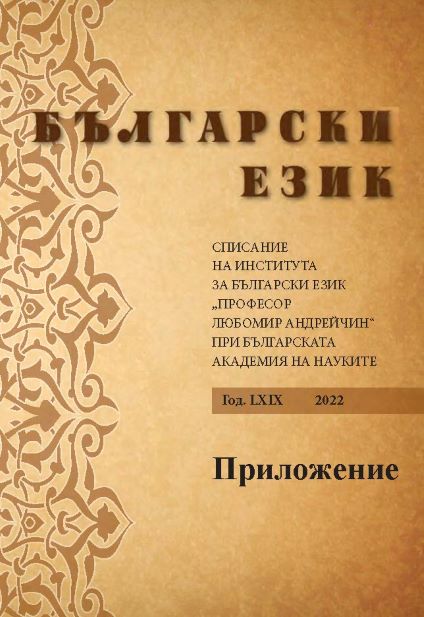Ритмично-интонационни модели на прикопулните подчинени изречения
Rhythmic-Intonational Patterns of Subordinate Clauses Attached to Copular Main Clauses
Author(s): Krasilina Koleva-KostovaSubject(s): Language studies, Language and Literature Studies, Theoretical Linguistics, Applied Linguistics, Philology
Published by: Институт за български език „Проф. Любомир Андрейчин“, Българска академия на науките
Keywords: rhythmic-intonational patterns; subordinate clauses attached to copular main clauses; complex sentences
Summary/Abstract: The paper presents the results of parallel observations on the structurography and the rhythmic-intonational patterns of subordinate clauses attached to copular main clauses in the Bulgarian language. It focuses on complex sentences, whose intonation contours are almost unexplored. One exception is the study of the intonation in complex sentences with a subordinate subject clause by Vladislav Marinov. The aim of this paper is to describe the structure of complex-compound sentences by examining a selection from a small corpus of sentences with copular main clauses. Using acoustic analysis programmes, I observe the intonation curves of these sentences and attempt at identifying intonational patterns associated with the variations of the basic sentence model NP cop NP in which the left and/or the right-hand noun group is substituted by a main or a subordinate clause (S): S1 cop S2, NP cop S, S cop NP. The main goal is to identify the characteristic features of the intonational connectivity within the complex-compound sentence and to study whether predicatives and their constituents are associated with particular intonational patterns. The object of study is predicative connectivity in complex-compound sentences and its reflection in their intonation contours. In particular, I observe subordinate clauses attached to copular main clauses, traditionally divided into subject clauses and subject complement clauses. An important prerequisite for this work is a previous pilot study on a corpus of com-plex-compound sentences, which has shown that subject complement clauses are characterised by extremely low frequency.
Journal: Български език
- Issue Year: 69/2022
- Issue No: Special
- Page Range: 218-229
- Page Count: 12
- Language: Bulgarian

